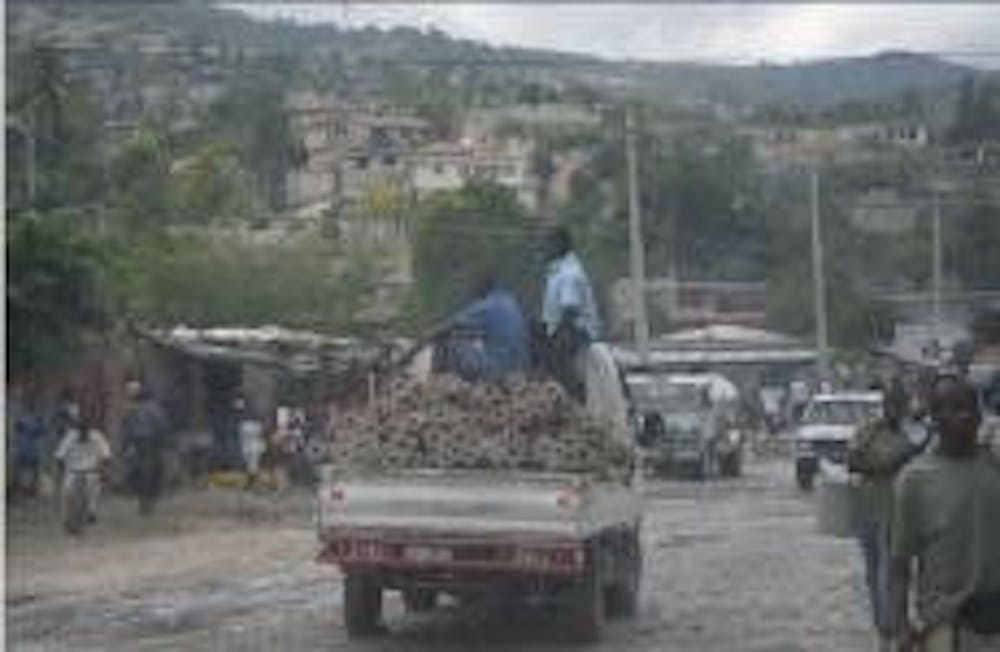
I was in the first session of my Latin American Studies class when I first received news of the earthquake in Haiti and, sadly, the first thought I had was how incredibly ironic it was. During my study abroad experience in Honduras, a magnitude 7.0 earthquake hit the country, but because my group was far from the epicenter and nothing was harmed, the incident became nothing more than an exciting story to tell everyone back home.
It was not until I received a phone call from a professor that I realized the seriousness of the situation. She relayed the initial news report to me: the earthquake had hit Port-au-Prince, a hospital had collapsed, the presidential palace had collapsed and many were trapped or dead. The shock quickly set in.
Only three days before, I had flown home from Port-au-Prince after a two-week medical mission with Randolph World Ministries. I spent the first week of the new year working in the laboratory of Christianville clinic, a small health center run by Haiti Health Ministries and located just outside of the city. During my time there, I also had a chance to visit the nearby villages. The rural scenery was breath-taking, but the heartwrenching things I saw were countless: tiny, open-air houses inhabited by five or more people, swollen bellies, children picking food off the ground and litter dotting the dirt roads. The compound I stayed at was the only place around with electricity and water. Despite these conditions, the people I met were very welcoming and cheerful. The children ran up to take our hands whenever we passed by, and everyone always greeted us with a cheerful "Bonswa!" Many of the people were optimistic about the great things the new year could bring.
I would later find Christianville was only five miles from the earthquake's epicenter. The first 24 hours were agonizingly silent as I searched for any news from the clinic. Finally, on Wednesday afternoon, I discovered a Facebook group with updates from the staff's family. The initial news was horrific. "Most of the mission is destroyed," a medical assistant wrote. "All of the medical staff have been working around the clock to care for the wounded; many have died or will not make it." All of the American staff were alive, but they were sleeping outside on mattresses in fear of aftershocks. Many of them sent messages for help, asking for funds to buy supplies that would quickly run out and several Paypal sites popped up for immediate donations.
Thanks to the powers of prayer and social networking, glimmers of hope came through on Friday and Saturday. Someone was able to send the Coast Guard into Christianville with aid and, as of Sunday, a private plane was en route with supplies needed to re-open the clinic this week. However, there is still a lot of rebuilding yet to be done there and there are some things that can never be replaced. I still do not know whether my Haitian friends - the clinic's lab technician, our translators and the people who welcomed us into their homes - are alive and safe. Their faces keep replaying through my mind and the only thing I can do is hope that they have not been harmed.
Having come to know the Haitian people, the best thing I can do is to encourage all of you to take some part in earthquake relief efforts. Monetary donations are the most efficient way right now to help. You can donate to any of the big relief forerunners, such as the Red Cross or Partners in Health or to a smaller organization, such as Hope House Ministries, with which you have connections. In the meantime, Miami is already bringing together interested students and faculty through the "Miami University Haiti Relief Efforts" Facebook group and generating ideas for long-term projects and future volunteer opportunities. Please consider getting involved and helping out Haiti in any way you can.
Lauren Spadaforaspadaflj@muohio.edu




